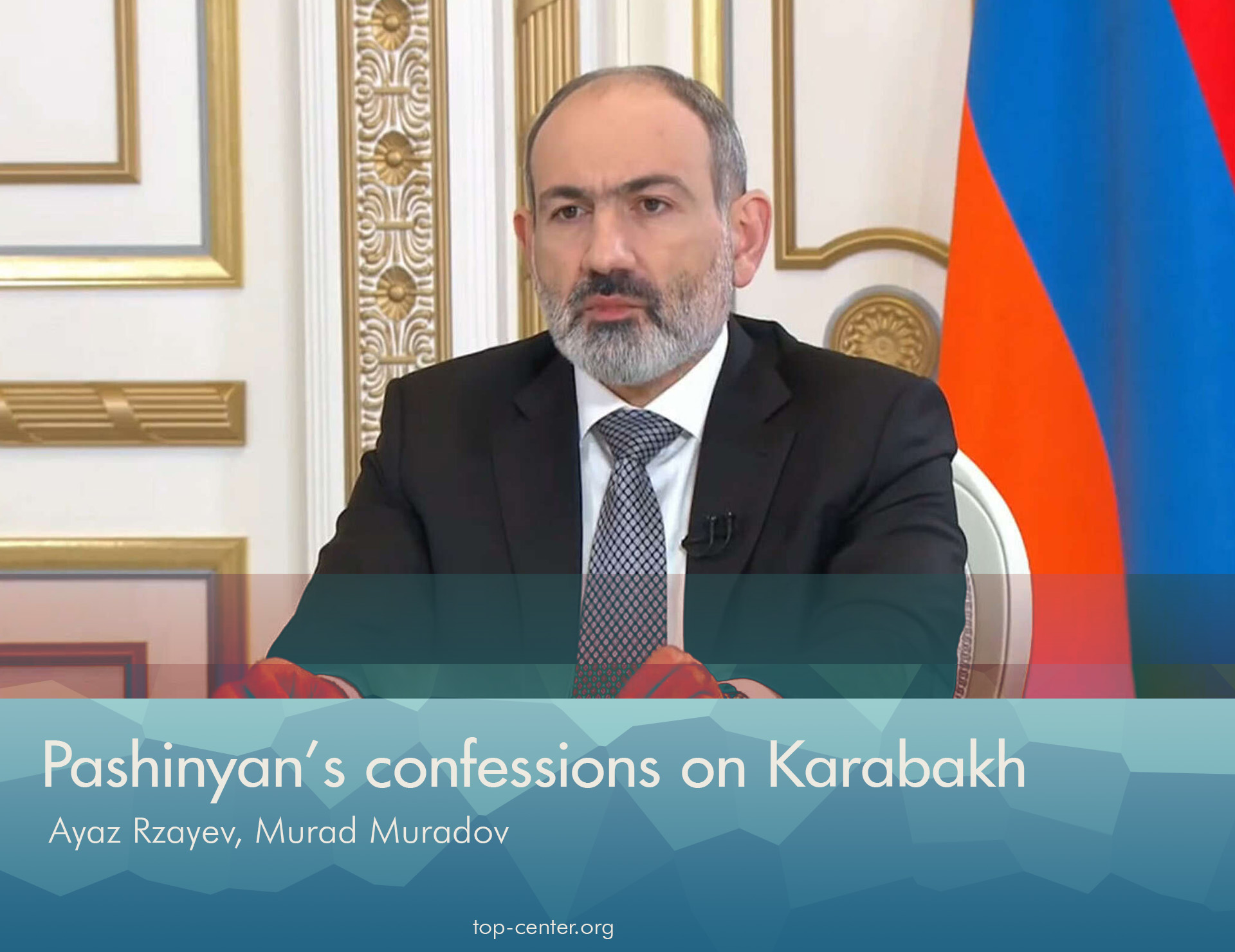Pashinyan’s confessions on Karabakh

Prime Minister Nikol Pashinyan’s remarks on the real situation in the Karabakh negotiations before the 2020 war have sparked a shock wave of criticism in Armenia. During his 24 December news conference, Pashinyan claimed that a "catastrophe" during the negotiation process transpired in 2016. According to him, for the first time since 2011, the settlement proposals offered during the negotiations had not mentioned granting temporary status to Nagorno-Karabakh. Instead, Pashinyan argued, the status issue was effectively transferred to the UN Security Council, which, in agreement with Baku, Yerevan and the co-chairs of the OSCE Minsk Group, was supposed to work out legal and practical aspects of the matter, turning Yerevan’s policy of keeping the settlement process within the framework of the OSCE Minsk Group utterly unsuccessful. According to the Armenian Prime Minister, the international community’s position on its territorial status became obvious when the UNSC adopted in 1903 a resolution that recognized Azerbaijan’s territorial integrity and used the term “the Nagorno-Karabakh region of Azerbaijan.” Pashinyan stressed that transferring the issue of the status to the UNSC was a “catastrophe” because it meant that the final status would’ve decided “in accordance with the Constitution of Azerbaijan”.
Pashinyan also noted that throughout the negotiation process, no one questioned the rights of the Azerbaijani population of Karabakh. “The Nagorno-Karabakh Autonomous Oblast has never been viewed as merely and only an Armenian entity during the process of negotiations because during the negotiations it was recorded that Azerbaijanis also lived in the Nagorno-Karabakh Autonomous Oblast and the protection of their rights was part of the negotiations. I have stated that when there were talks about a referendum for adjustment of the status of Nagorno-Karabakh, there were also talks about the whole population of Nagorno-Karabakh. This means not only the Armenian population but also the Azerbaijani population,” he said.
Pashinyan further reiterated that during the negotiations Karabakh “was perceived and recorded as an Armenian and Azerbaijani entity, at least from the point of view of its population” and that the Armenian side had acknowledged that “reality” in negotiations. On the issue of the referendum on the final status of Nagorno-Karabakh, Pashinyan pointed out that it involved both the Armenian and Azerbaijan population of Karabakh, adding that if “the right to self-determination would have, for example, been exercised within the framework of Armenia's comments”, the Azerbaijani population could "have been able in this context to raise the principle of their own self-determination as well”.
To sum up, Pashinyan in his controversial message wanted to convey the idea that Armenia had not stood a chance to win or save face for some time before the actual war broke out, thus dispelling charges against his alleged “treason of Artsakh” (indeed, baseless rumours about “selling Shusha” and “keeping armed units from fighting” are still widely circulating among Armenians). Passing the buck of guilt to his predecessors who hail themselves as patriotic and able guardians of Armenian victory, Pashinyan points to the systemic failure of Armenian diplomacy which had been progressively weakening the claims for “independence of Karabakh” and the legitimisation of the status quo. On the more implicit level, he alludes to the Armenian society’s intransigence and unwillingness to look in the face of truth as core reasons for the 2020 catastrophe, as it prevented the leadership from making a timely compromise when in fact there was nothing else in store for Yerevan. Pashinyan literally said in what might have been the most shocking confession that his fault had been not in “giving up the lands” but in “not giving up them earlier” which could have saved thousands of lives.
Why did the Armenian Prime Minister decide to give such a revealing interview at this particular time? Most probably he has been driven by the latest dramatic moves towards conflict resolution with Azerbaijan and normalization with Turkey which followed soon after the Brussels meeting of Azerbaijani and Armenian leaders. The parties have agreed to expand the works on border delimitation and opening of transport communications while also setting up a mechanism of preventing borderline escalations. With Ankara, Yerevan has agreed on the mutual appointment of special representatives for the normalization process which ultimately aims at establishing diplomatic relations. These developments stirred nationalists who still view them as a betrayal of the “Armenian cause”. Of course, Pashinyan understands it well but the 16 November clashes have proved he has no other option left. It might be the reason why he decided to finally reveal the unpleasant truth in order not to have to continue the exhausting and costly game of sitting on two chairs and playing a peace champion and a national populist at the same time. Choosing the eve of the New Year holidays for these confessions might have had a rationale that political life at the height of winter is relatively calm and people are largely preoccupied with their family affairs so it would not produce such a shock as it could have at another time of the year.
For Baku, the conclusions to draw from Pashinyan’s message are mixed. On one hand, it is now clear that the continuous pressure on Yerevan, both diplomatic and military, has yielded results and the Armenian government seems to have abandoned attempts to somehow avoid fulfilling the promises made a year earlier. The denouncement of Yerevan’s new stance by the so-called “Artsakh authorities” suggests that Yerevan’s commitment to promoting “the self-determination of Nagorno-Karabakh” will gradually shift towards a mere formality and will not be a precondition for the peace-making with Azerbaijan. On the other hand, it means that Baku will have to deal with Russia which might feel urged to play the “Russian world” card and use the intransigence of the separatists to exert continuous pressure on Azerbaijan. This creates a set of new challenges and opportunities to adjust to. For Yerevan, this new situation may be a potential winner: by refusing to stand for the separatist regime, it can absolve from all responsibility, release the financial burden on its budget and pursue new opportunities from the normalization with Baku and Ankara while at the same time “outsourcing” Karabakh to the Russians, knowing that their presence satisfies most Armenians for whom this option is preferable to the full integration of Karabakh into Azerbaijan.








